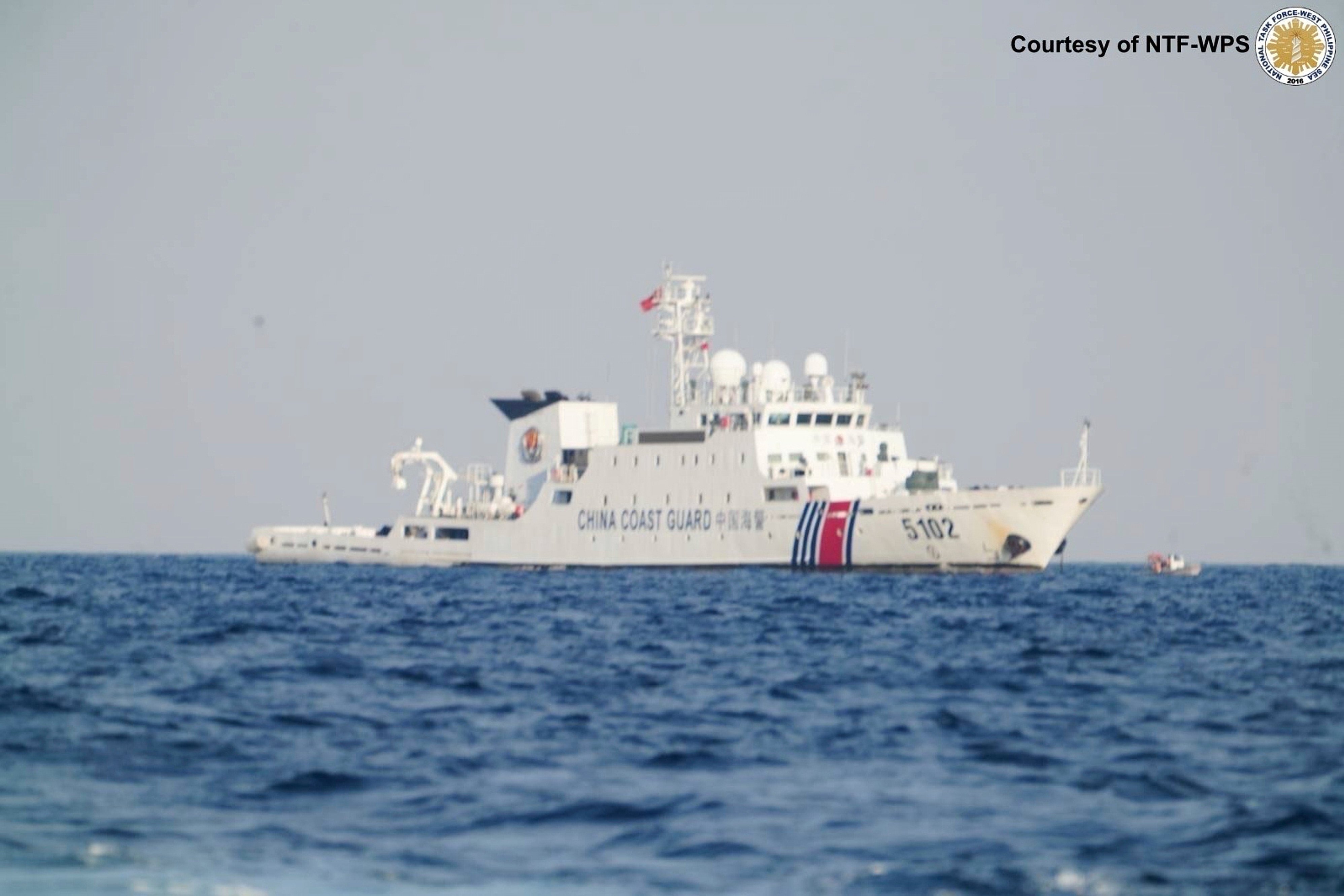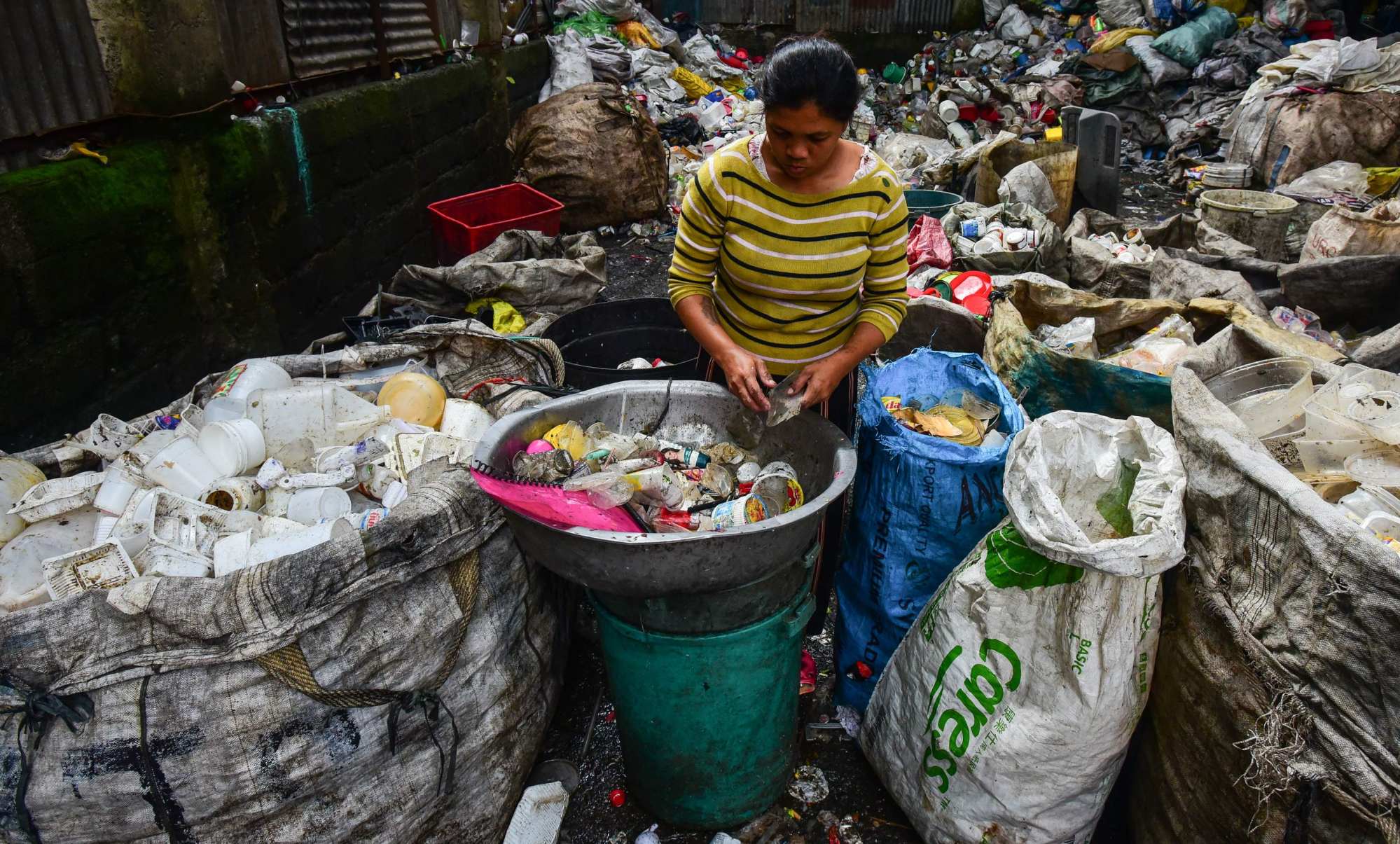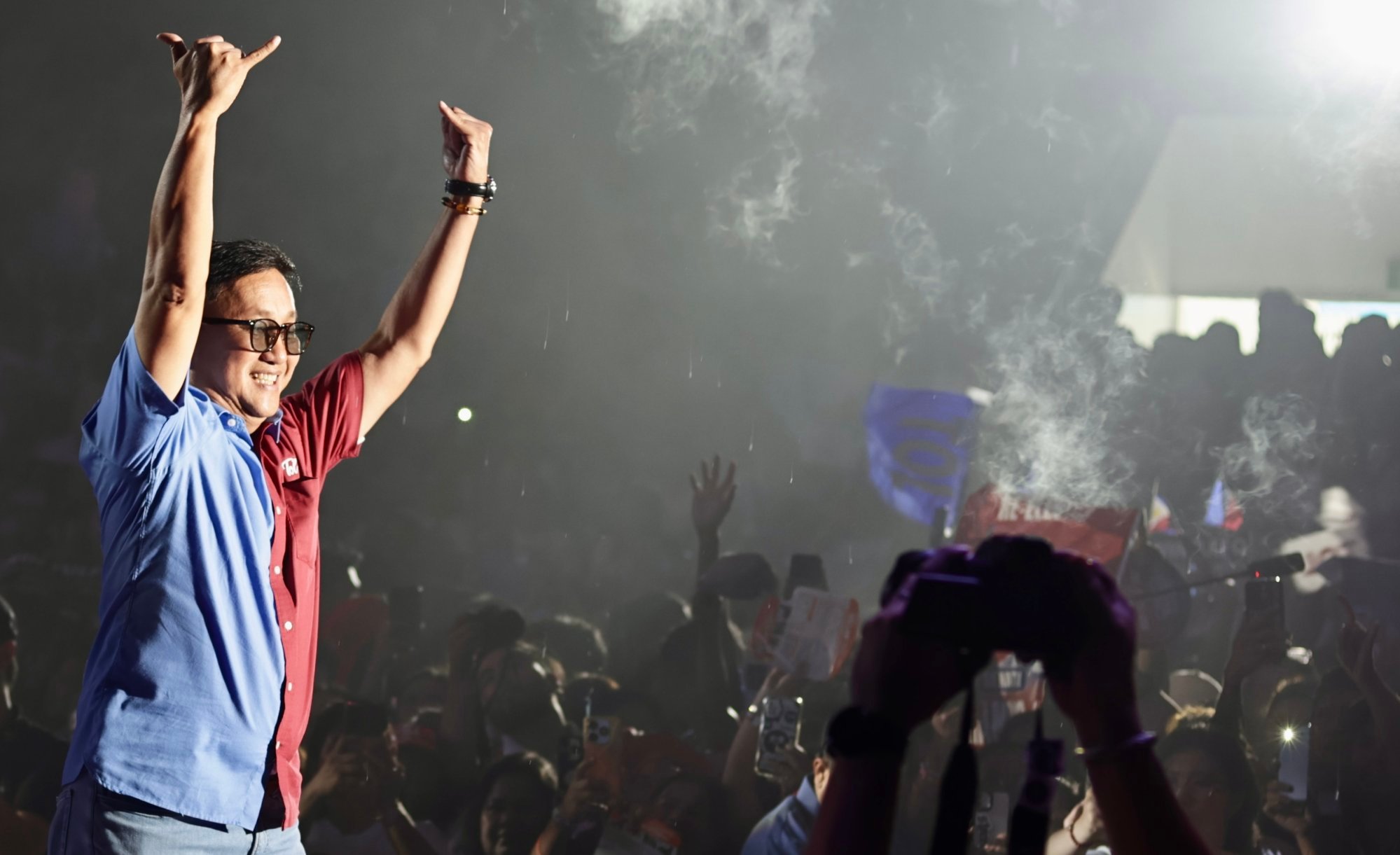Why Philippines’ poorest voters may not back hardline anti-China candidates
Economic survival outweighs foreign policy concerns for those living below the poverty line, analysts say

With less than two weeks to go before the Philippines’ midterm elections, a new survey shows a surprising divergence in voter preferences over Manila’s maritime dispute with China – particularly among the country’s poorest.
While an overwhelming 75 per cent of Filipinos say they prefer Senate candidates who will assert the Philippines’ rights over the West Philippine Sea – Manila’s name for parts of the South China Sea within its exclusive economic zone – that number drops sharply among the nation’s most economically vulnerable, according to a survey by pollster Social Weather Stations, commissioned by the Stratbase Group.
Among Filipinos in class E – those living below the poverty line – 41 per cent said they would vote for candidates who do not plan to assert the country’s maritime claims, far higher than the national average of 25 per cent.
Analysts have linked the trend to the reach of China-backed disinformation and the dominance of bread-and-butter issues for lower-income voters, many of whom are more concerned with economic survival than foreign policy.

Dindo Manhit, president of Stratbase, said the results showed how disinformation had disproportionately influenced class E voters, making them “the primary targets and victims” of Beijing’s information operations ahead of the elections on May 12.
“Tragically, Social Class E’s daily fight for survival leaves them more susceptible to these manipulations, especially when false narratives are amplified by local candidates who have historically aligned themselves with Chinese interests,” Manhit said.
“Worse, this disinformation has been enabled and magnified by local politicians, particularly those with a history of favouring Chinese interests, who now package themselves as patriots during election season. They exploit the struggles and aspirations of the poor, weaponising false promises and hollow words to gain votes.”
Last July, a surge of online rumours about a civil war in the Philippines was linked to coordinated efforts from Chinese social media accounts, which analysts said were part of cognitive warfare tactics from Beijing.
On Thursday, National Security Council assistant director general Jonathan Malaya said that there were “indications” that “information operations [being] conducted … are Chinese state-sponsored in the Philippines and are actually interfering in the forthcoming elections”.
In a statement on Tuesday, the Chinese embassy in Manila said that it “adheres to the principle of non-interference in the internal affairs of other countries and we have no interest in interfering in elections in the Philippines”.
“We are strongly against the heinous accusation towards China and condemn the obstruction of the normal functioning by the embassy. We noticed the attempts of some politicians to play the so-called China card to serve their political self-interests and boost their election prospects before the midterm election. Such attempts are despicable and doomed to failure,” it added.
Manhit noted that the “hardworking men and women” from class E were not to blame for being susceptible to false narratives.
“They are victims of a deliberate, aggressive disinformation campaign waged by China, which aims to dull national outrage, normalise foreign aggression, and create confusion about the necessity of defending Philippine sovereignty,” he said.
Practical politics
Other analysts said that voters’ “weak association” with candidates defending the West Philippine Sea reflected how the issue was removed from their day-to-day existence.
Matthew David Ordoñez, a political science lecturer at De La Salle University, said that while online discourse on the West Philippine Sea has grown, traditional media channels such as television and radio which “often present more subdued coverage of the issue” remain primary news sources for Filipino voters.
“Except for Senator [Francis] Tolentino and a few sectoral candidates, most do not centre their campaigns on China or the West Philippine Sea. Instead, face-to-face and door-to-door outreach remains more effective, with campaign messaging focused on economic issues rather than foreign policy,” he told This Week in Asia.
Gino Trinidad, a political science instructor at Ateneo de Manila University, stressed that these candidates would be more focused on practical issues such as jobs and the economy.

“Of course the [dispute] definitely affects the fisherfolk and their families living close to the disputed waters, and many of them arguably belong in class E … My sense is that unless the assertion of the Philippines’ rights to the West Philippine Sea is directly and palpably shown to have a net positive effect on such bread-and-butter issues, the class E electorate would not be too much concerned about it,” Trinidad told This Week in Asia.
He added that Class E voters “might actually think that such an assertion would be counterproductive given the material might of China, thus the preference for non-assertive candidates on the issue”.
Candidates under Ferdinand Marcos Jnr’s administration slate have been trying to pull voters away from so-called pro-China contenders, which include members of former president Rodrigo Duterte’s senatorial line-up, according to Ordoñez.
Marcos and Duterte were once political allies, but have since become rivals, with foreign policy – particularly towards China – emerging as a major dividing line.
Duterte, during his presidency, sought closer ties with Beijing and downplayed the Philippines’ maritime disputes, which led to perceptions that his camp was too accommodating to Chinese interests.
Even so, Ordoñez said the “pro-China” label does not stick strongly to Duterte’s allies, as many Filipino voters do not view them through that lens.